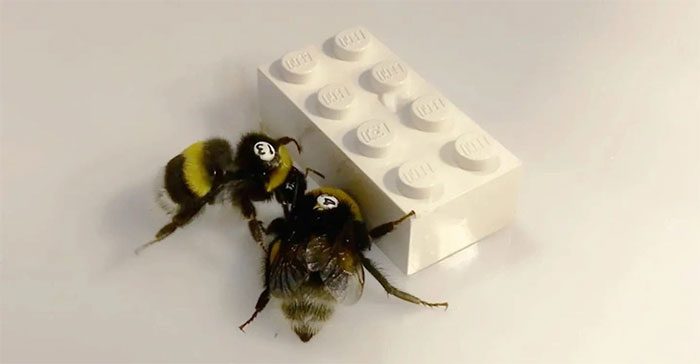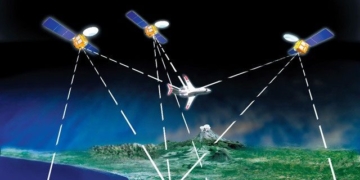Research Shows That the Intelligence of Wasps Surpasses Our Expectations.
Science has documented that wasps are capable of cooperating to solve problems they encounter. However, does their tiny brain play a role in this teamwork, or is it merely an instinctive behavior?
To explore this, researchers in Finland allowed wasps to play with Lego—one of the most popular toys in the world.

Wasps playing with Lego in the study by Finnish scientists – (Photo: OLLI LOUKOLA).
Olli Loukola, a behavioral ecologist at the University of Oulu, expressed surprise at how the wasps considered the movements of another wasp and then coordinated their own movements during interactions with the Lego pieces. This behavior illustrates the remarkable social intelligence of wasps.
In addition to the Lego task, the researchers created another challenge for the group of wasps. They had to touch a transparent door at the end of a tunnel to access nectar.
They observed that the first wasp to reach the door was likely to turn away if its “teammate” was held back, and it would only proceed toward the door when it saw that the “teammate” was heading in the right direction.
“This study shows that the complex cooperative behavior of social insects can go beyond innate or fixed abilities. They even have the capacity to learn behaviors typically associated with animals such as primates and dolphins,” commented James Dorey, a biologist from Australia who was not involved in the research.
The scientists noted that further research is necessary to understand exactly what wasps pay attention to in cooperative tasks and to what extent they comprehend the roles of their peers. However, overall, the study has contributed to confirming the intelligence of wasps, far exceeding what we usually acknowledge.
The findings of this research also help humans gain deeper insights into wasp behavior, with potential applications in fields such as robotics and agriculture.
The study was published in the journal Proceedings of the Royal Society on May 1.


















































